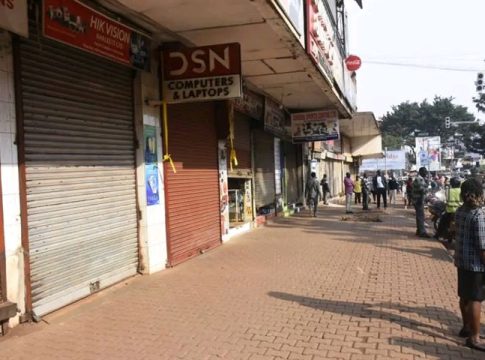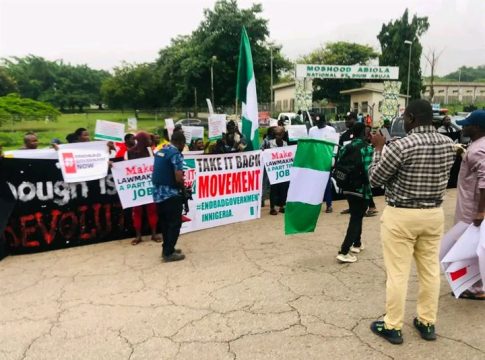A wave of protests has swept through Kampala, Uganda’s capital city, as traders take a bold stance against the Uganda Revenue Authority’s (URA) contentious Electronic Fiscal Receipting and Invoicing Solution (EFRIS) and the crippling effects of high taxes.
The strike, which commenced on July 31, 2024, has brought business to a grinding halt, with traders shuttering their shops in a show of solidarity.
At the heart of the dispute lies the traders’ vehement opposition to the EFRIS system, which they claim is shrouded in complexity and threatens the very survival of their businesses.
“We can’t understand this system, and it’s killing us,” exclaimed one frustrated trader.
The 18% Value-Added Tax (VAT) rate has also come under fire, with traders decrying the double taxation that stifles their competitiveness.
The traders’ demands are clear: a meeting with President Museveni to air their grievances and find a solution to the impasse.
READ MORE: Nigeria Govt. Moves To Alleviate Hunger Crisis, Offers Relief On Food Items, Suspends Import Duties
“We want the President to hear our cries and intervene,” said a trader.
However, the government’s response has been lukewarm, with the Minister of Kampala promising a meeting with the President, but failing to provide a written statement or formal communication to confirm the engagement.
As the strike enters its second day, police officers have taken to the streets, urging traders to abandon the strike and resume business.
“Please open your shops, and let’s talk,” pleaded one officer.
But the traders remain resolute, insisting on a concrete commitment from the government before returning to business as usual.
The strike has exposed deep divisions among traders, with some choosing to remain open, while others have joined the protest.
The United Arcaders Entrepreneurs Association (UATEA) has announced its own strike, starting on August 1, 2024, further complicating the situation.
As the standoff continues, uncertainty and inconvenience reign supreme, with traders and customers alike feeling the pinch.
The situation remains unresolved, with no end date in sight for the strike.




